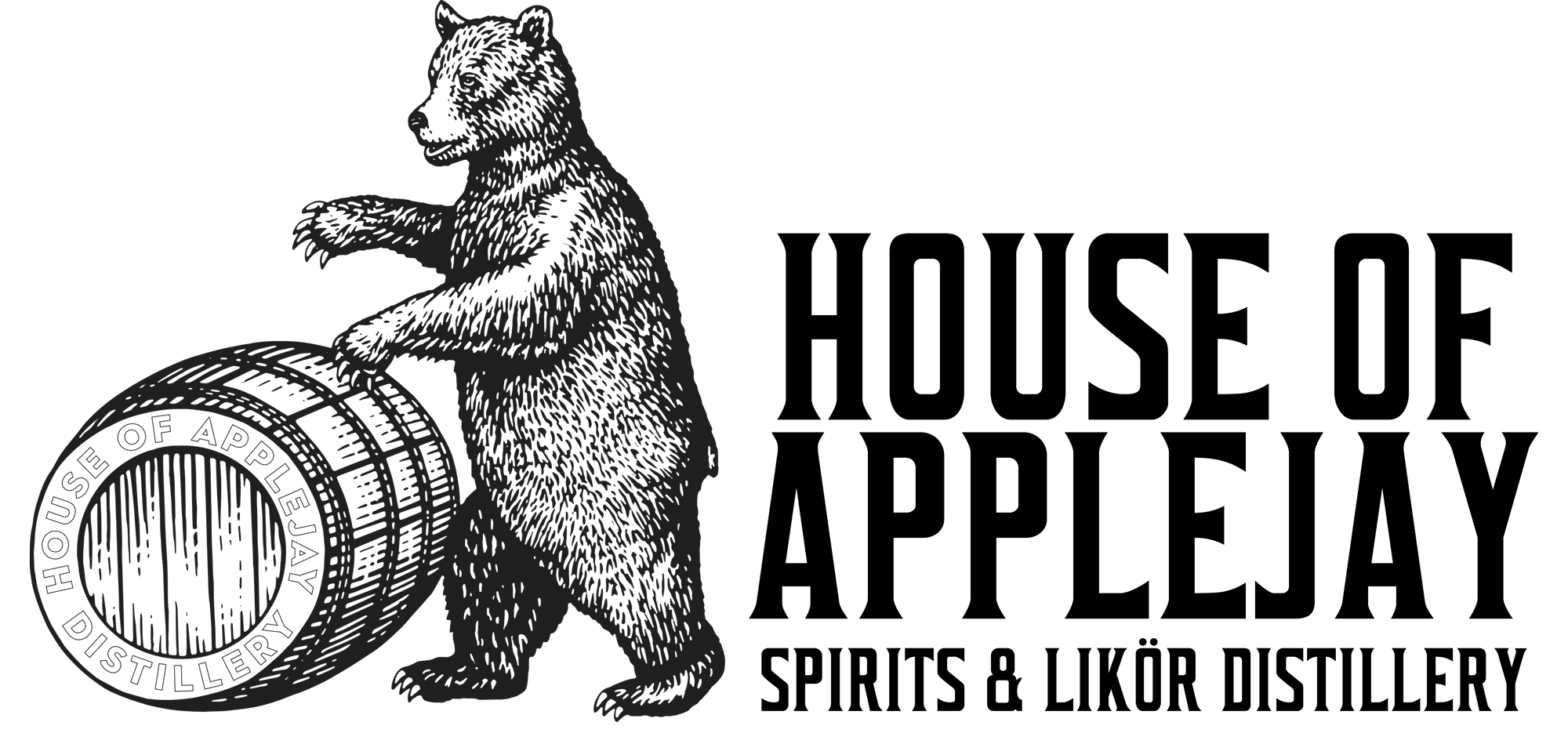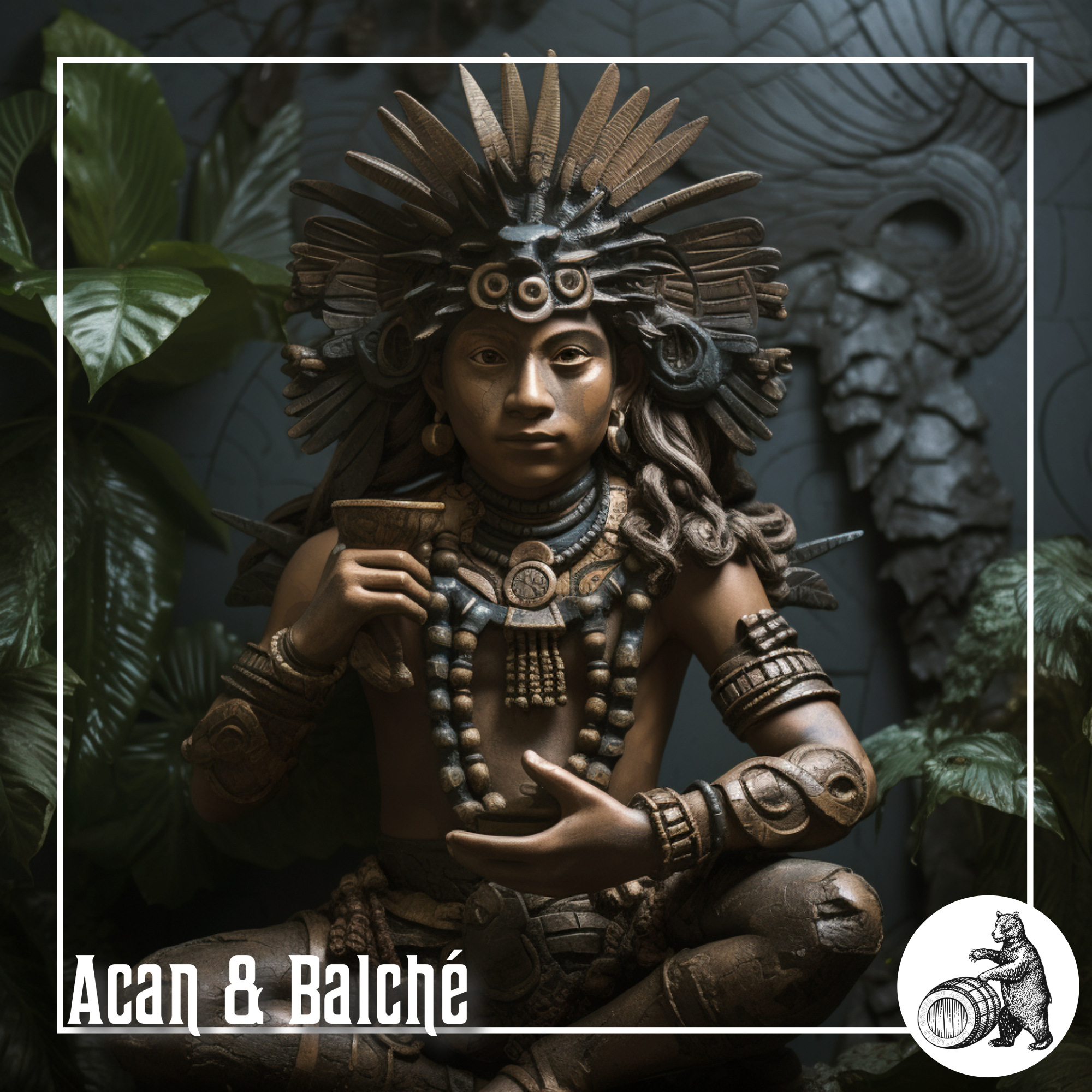Acan & Balché
The Mayan God of Intoxication and his Sacred Brew of Balché
In the heart of ancient Maya civilization, amidst the verdant jungles and towering pyramids, resides a deity shrouded in mystery and reverence—the god Acan, patron of intoxication, revelry, and spiritual communion. Through the sacred elixir known as balché, the Maya sought to commune with the divine and unlock the secrets of the cosmos. Yet, this sacred tradition faced upheaval with the arrival of Spanish conquistadores, who sought to suppress indigenous practices and impose their own religious beliefs.
The Mythology of Acan
In the pantheon of Maya gods, Acan stands as a figure embodying both the pleasures and perils of intoxication. Known as the “Mayan Bacchus” by Spanish invaders, Acan’s name translates to “burp” or “groan”—apt descriptors for the god of inebriation. Associated with joyous festivities and communal bonding, Acan’s influence extended beyond mere revelry to encompass creativity and spiritual enlightenment.
The Sacred Brew of Balché
At the heart of Acan’s domain lies balché—a ceremonial beverage crafted from the bark of the balché tree and infused with the sweetness of melipona honey. This sacred elixir served as a conduit for spiritual communion and divine revelation, enabling participants to transcend the boundaries of ordinary consciousness and commune with the spirits of nature. The process of making balché involves meticulous care and ritualistic practice, with the bark of the balché tree macerated and submerged in virgin cenote water, honey added, and left to ferment for three days.
Ceremonial Practices & Suppression
In Maya religious ceremonies, the consumption of balché was intertwined with the use of psychoactive substances and ritual enemas, reflecting the Maya’s holistic approach to spiritual enlightenment. Balché, with its entheogenic properties, induced altered states of consciousness, enabling participants to communicate with the divine and access hidden truths. Tobacco, datura, and other psychoactive plants were smoked, inhaled, or administered via enemas to intensify the ecstatic experience. With the arrival of Spanish conquistadores, the sacred traditions of the Maya faced suppression and destruction. Orchards producing the ingredients for balché were systematically destroyed, and indigenous practices were condemned as pagan rituals. The suppression of balché and other indigenous traditions marked a profound disruption in Maya culture, erasing centuries-old traditions and spiritual practices.
Acan & Baccus
Acan, the Maya god of revelry, shares intriguing similarities with Bacchus, the Roman god of wine. Both deities are associated with joyful gatherings and the consumption of alcoholic beverages. Balché, the sacred drink of the Maya, mirrors the wine used in Bacchanalian rites. Both beverages facilitate communion with the divine and induce altered states of consciousness. Rituals surrounding Acan and balché echo Bacchanalian festivities, emphasizing communal bonding and spiritual transcendence.
Despite the geographical and temporal distance distance separating Maya and Roman cultures, the enduring fascination with intoxication and communal celebration persists as a shared human experience. Acan and balché, with their intriguing similarities to Bacchus and wine, provide a deeper comprehension of the diverse manifestations of human spirituality and the timeless significance of intoxication in shaping cultural customs and beliefs.
The Distilling Culture
BLOG
Embark on a global journey, and you’ll find that cultures possess tales that harken back to their ancient beginnings of distillation, brewing, and winemaking.
info@houseofapplejay.com
67 Fowler St, Bldg B, East Ellijay, GA 30540

